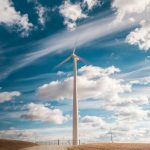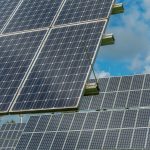Pursuing economic growth at the expense of the environment is no longer an option as Europe faces “unprecedented” challenges from climate chaos, pollution, biodiversity loss and the overconsumption of natural resources, according to a report from Europe’s environmental watchdog.

Europe was reaching the limits of what could be achieved by gradual means, by making efficiencies and small cuts to greenhouse gas emissions, with “transformational” change now necessary to stave off the impacts of global heating and environmental collapse, warned Hans Bruyninckx, executive director of the European Environment Agency.
“Marginal efficiency gains are not enough – they are not working to bring down emissions,” he said. “There is also a higher cost to marginal efficiency gains, if we keep investing in that. If we focus on making current technologies more efficient, there are limits. If we stick to what we know, it may seem easy but it doesn’t work in the long term.”
The EEA scored 35 key measures of environmental health, from greenhouse gases and air pollution, waste management and climate change to soil condition and birds and butterfly species, and found only six in which Europe was performing adequately.
“Incremental changes have resulted in progress in some areas but not nearly enough to meet our long-term goals,” said Bruyninckx. Further marginal changes would grow only more expensive, he predicted, making large-scale change necessary. “We already have the knowledge, technologies and tools we need to make key production and consumption systems such as food, mobility and energy sustainable.”
Wholesale changes could include banning internal combustion engines and scaling up public transport, abandoning fossil fuels in favour of 100% renewable energy, stipulating that products must be designed and manufactured to create no waste, and changes to our diets and agricultural production. Environmental goals could not be seen as separate to or lesser than economic goals, and accepting environmental damage as an inevitable cost would lead to ecological collapse, Bruyninckx warned.
The old system – of “continuing to promote economic growth and seeking to manage the environmental and social impacts” – would not deliver the EU’s long-term vision of “living well, within the limits of the planet”, the report warned.
The report, known as European Environment – State and Outlook (SOER), is a comprehensive study produced every five years and details the health or otherwise of all natural systems across EU member states and others including Norway, Switzerland and Turkey. The 2020 edition was brought forward to inform the incoming European commission as they discuss a promised “green new deal”, and for delegates at COP25, the UN conference on climate change currently taking place in Madrid.
There has been little improvement since the last report in 2015, despite promises, policies and targets, according to SOER 2020. Fewer than a quarter of protected species and only 16% of habitats are in a good state of conservation. Reduced pollution has improved water quality, but Europe will miss by a long way its goal of having a “good” rating for all water bodies by 2020. Though air quality has improved, about a fifth of the urban population live in areas where concentrations of pollutants exceed at least one EU air quality standard, and 62% of ecosystems are exposed to excessive nitrogen levels.
Global heating has added to the risks to health. For instance, Bruyninckx pointed to the melting ice and permafrost in the far north as a little-considered danger. “Russia has buried some very toxic chemicals beneath the ice and we expect melting ice to release some of them,” he said. “Some chemicals are also sensitive to heat, so if we have more heatwaves that is a risk too.”
Read more: Guardian





